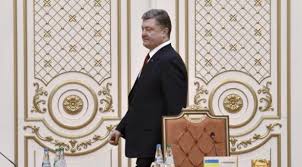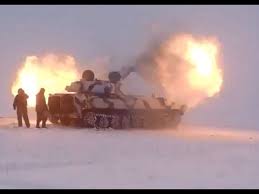(VOA) Some scholars say that neither Minsk cease-fire agreements nor sanctions imposed on Russia are enough to end hostilities and stabilize Ukraine.
Executive Director of the McCain Institute at Arizona State University, Kurt Volker, a former U.S. ambassador to NATO said that the cease-fire in eastern Ukraine is definitely not working. People are still fighting, Volker said, and by definition there is not a cease-fire.
Even if it holds for a few days, he said, Russia is going to use that time to rearm and consolidate rebels in eastern Ukraine. The United States and European Union should also use the time to impose more sanctions on Russia, including President Putin and his family. […]
Cory Welt of Elliott School at George Washington University said there is still some hope that the cease-fire will succeed. It is hard to say that the cease-fire is in the interest of Ukraine at this moment, Welt said. He said Ukraine needs peace so the nation can focus on needed reforms and not spend resources and lives on war.
Welt said it may become necessary to supply weapons to Ukraine. But the decision to send lethal aid should hinge not on the cease-fire but on whether Russia pushes beyond the line that currently exists.
“So, if there is continued fighting just on the line of contact, I do not think that will lead to much more than support that has already been given. But if Russia were to try to take, let say, Mariupol on the cost, or other territories that were previously occupied, then it would be very difficult for the U.S. administration to withstand the constant request to supply the Ukrainians with more lethal equipment, whether that would lead to further escalation of conflict is unknown, but there is the possibility of more sanctions to Russia," said Welt.
See the full article © Voice of America (VOA)











